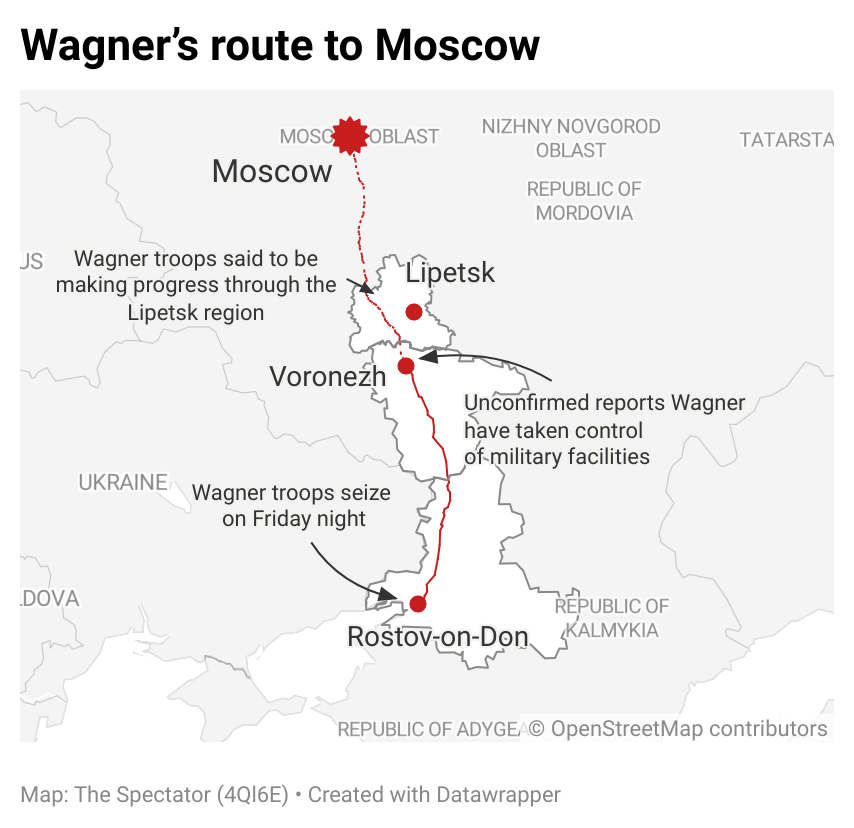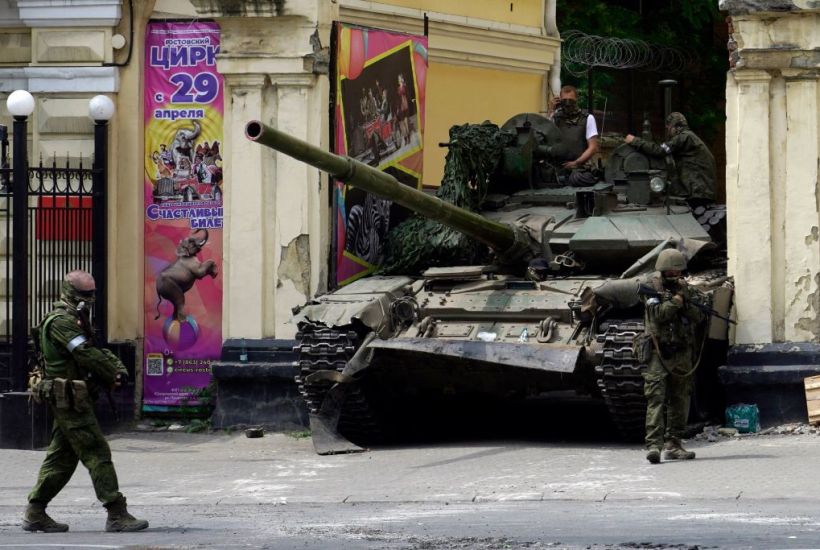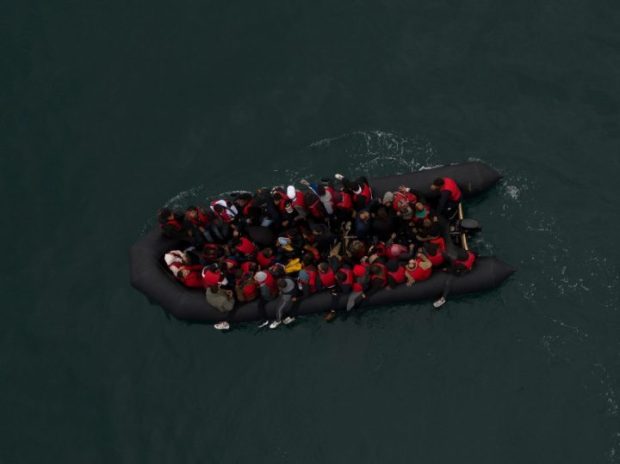Yevgeny Prigozhin, the leader of the Wagner mercenary group, has left Rostov-on-Don and ended the armed insurrection against Vladimir Putin. After one of the most extraordinary days in Russian history, he said he marched within 125 miles of Moscow but said he decided to go no further to avoid bloodshed. Putin, who had ordered his army to crush Prigozhin and imprison his men, has agreed to drop all charges. After a Belarus-brokered peace deal, Prigozhin will self-exile in Minsk, according to the Kremlin. Footage emerged showing him being bid farewell by cheering crowds in Rostov and winding down his window to greet them. A few hours earlier, he released the following statement on Telegram:
We marched out on 23 June on the Justice March. In one day, we got within 200 kilometres of Moscow. During this time we did not spill a single drop of blood of our fighters. Now comes the moment when blood may be spilled. Therefore, understanding the responsibility that Russian blood will be spilled on one side, we are turning our columns around and retreating in the opposite direction to the field camps
Alexander Lukashenko, the President of Belarus, said everyone had agreed that unleashing ‘a bloodbath on the territory of Russia was unacceptable’. Ukraine, which had been hoping for a more protracted conflict between the two, was dismayed at the near-immediate collapse of the insurrection. Mykhailo Podolyak, an adviser to Volodymyr Zelensky, had this to say:
You almost nullified Putin, took control of the central authorities, reached Moscow and suddenly… you retreat. Because one very specific intermediary with a dubious reputation (#Lukashenko) promised security guarantees from the person (#Putin) who ordered to destroy you in the morning. And for the fear that the Putin elite has experienced in the past 24 hours, this order will certainly be executed.
The dispute between Prigozhin and Putin’s military commanders about the conduct of the Ukraine war has been simmering for weeks: US intelligence sources have been quoted as saying they knew he had been working on an insurrection, although they could not work out to what end. Prigozhin claims he acted when his mercenaries ended up being shelled by Russian forces. In one his many audio releases (he prefers Telegram recordings to statements) Prigozhin declared his rebellion on Friday night:
We have been dying in Bakhmut, defending the honour of Russia and the Russian army. They vilely deceived us, tried to deprive us of the opportunity to defend our homes and disperse the Wagner PMC. We were ready to make concessions to the Ministry of Defence, surrender our weapons and find a solution on how we would continue to defend our country. But these scum did not calm down. Seeing that we are not broken they launched strikes, rocket attacks on our rear camps. A huge number of our fighters, our comrades-in-arms, have died. We will decide how we will respond to this atrocity. The next step is ours.
His group encountered no resistance when it arrived at the million-strong city of Rostov, an hour from the Ukrainian border and headquarters to the Russian army in the south. Putin’s televised address yesterday morning (transcript here) denounced Prigozhin’s ‘stab in the back’ and threatened reprisal. ‘Those who organised and prepared the military rebellion, who raised arms against their comrades-in-arms, betrayed Russia – they will be held accountable for it,’ he said. This jars with Wagner’s claims that the Kremlin has agreed some kind of amnesty for its 25,000 fighters, of whom probably 5,000 were involved in the revolt.

As proof of coming within striking distance of Moscow, a Wagner soldier released a video from Voronezh where one of its mercenaries claimed to have shot down three helicopters and one transport plane. ‘We have heavy ammunition,’ he says. ‘Now we will move only to Moscow. The request of the armed forces not to resist us. Victory will be ours.’ A Russian human rights organisation, Gulagu.net, claims that Prigozhin had been stockpiling ammunition for two months and lying about ‘shell famine’.
But aside from the cheering crowds in Rostov, there were not many signs of people openly backing Wagner’s coup – which may explain yesterday evening’s retreat. Ramzan Kadyrov, the Chechen leader, rallied to Putin’s call, denouncing Prigozhin’s advance as ‘a knife in the back and a real military mutiny’. He said that Chechen fighters are now heading towards ‘the areas of tension’. ‘The rebellion must be crushed, and if this requires harsh measures, then we are ready!’ he said in a Telegram statement.
Prigozhin says his 25,000 fighters were ready to ‘end this mess’ and that, ‘the evil that the country’s military leadership perpetuates must be stopped.’ He also says, on arrival in Rostov, he found documents proving that the Ukraine counter-offensive is doing far better than the Kremlin let on. ‘The Russian army is retreating in the Zaporizhzhia and Kherson regions. Ukrainian troops are advancing,’ he said yesterday. ‘When we arrived here [Rostov] we confirmed a number of new things. Huge parts of [Ukrainian] territories have been lost. The number of [Russian] soldiers killed is three to four times what is being reported to the top… Total casualties are up to 1,000 people on some days.’ Reports this morning say that Nikopol, a city which lies opposite the Zaporizhzhia nuclear power plant – which is under Russian control – was shelled overnight.
For a coup to succeed, Prigozhin would have needed more active support not just from the military and security services but from other Russian powerbrokers. Instead members of the Duma, regional governors and several prominent army figures called on Russian citizens to support Putin and protect the motherland: no one of note came out in support of Prigozhin. This would suggest that the Kremlin’s efforts to pressure key decision-makers was effective. But as to what happens to Wagner Group now, with Prigozhin in exile, or even whether the truce will hold, remains unclear.
That Putin had to strike a compromise with one of his own warlords had exposed the weakness of his position in a country where weakness is more provocative than strength. We’ll bring you more news as it emerges.
Reporting and translation from Lisa Haseldine, Michael Simmons, Fraser Nelson, Hannah Tomes, James Heale, Svitlana Morenets and John Connolly
Got something to add? Join the discussion and comment below.
Get 10 issues for just $10
Subscribe to The Spectator Australia today for the next 10 magazine issues, plus full online access, for just $10.




















Comments
Don't miss out
Join the conversation with other Spectator Australia readers. Subscribe to leave a comment.
SUBSCRIBEAlready a subscriber? Log in